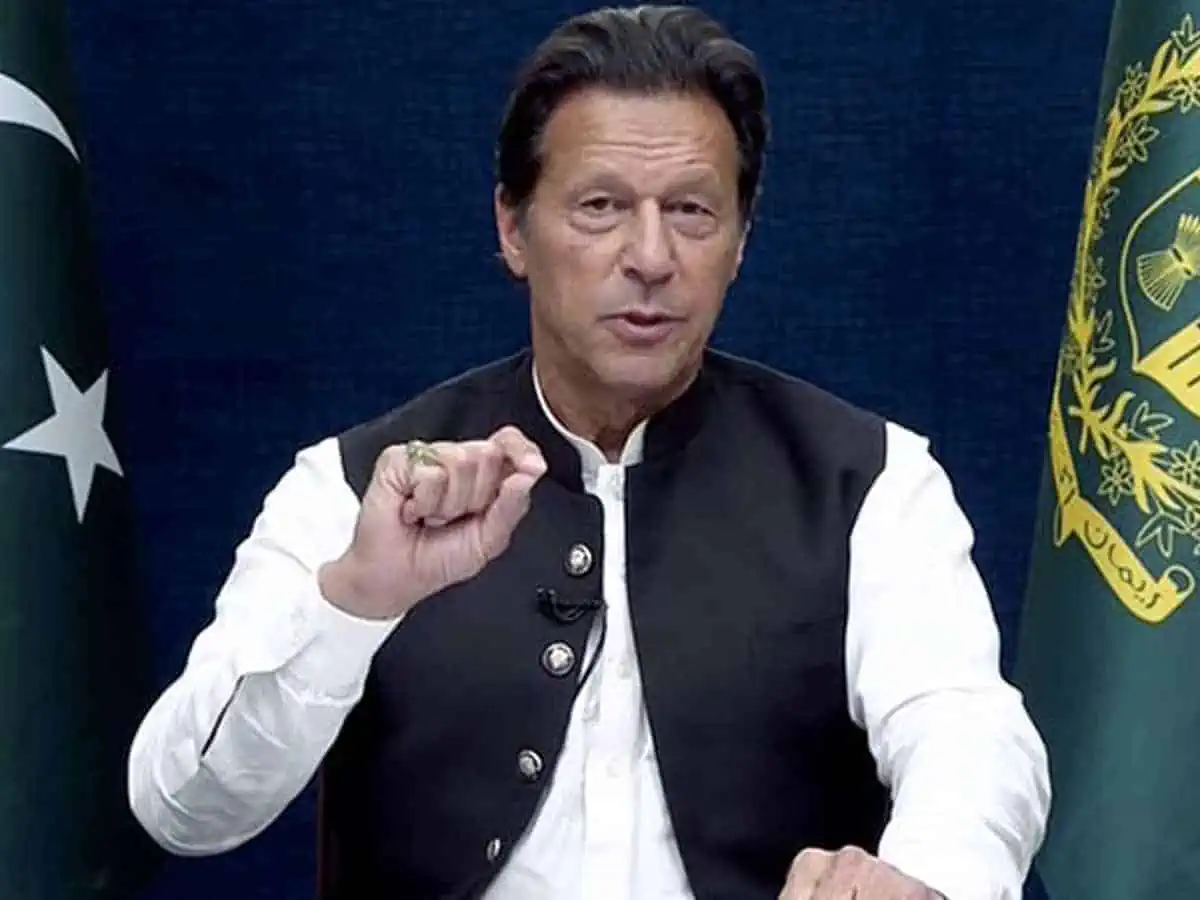
Islamabad: Pakistan’s jailed former prime minister Imran Khan has written to the IMF, urging it to conduct an “audit” of at least 30 per cent of the national and provincial assembly seats to unearth the brazen “intervention and fraud” during the elections before considering any further bailout talks with the cash-strapped country.
The 71-year-old Pakistan Tehreek-e-Insaf (PTI) party founder had announced last week that he would ask the Washington-based International Monetary Fund (IMF) to avoid any assistance as the authorities rigged the electoral outcome to keep his party out of power.
His nominated chairman of the party, Gohar Ali Khan, addressing a press conference with party secretary General Omar Ayub Khan, on Wednesday confirmed the letter but he refused to share its content.
The Press Trust of India has seen a letter addressed to IMF Managing Director Kristalina Georgieva by party spokesperson Raoof Hasan under the guidance of Khan.
It begins with a clarification that the party was not against the IMF facility to Pakistan.
“It must be clarified at the very outset that the PTI does not wish to stand in the way of any IMF facility to the state of Pakistan that promotes the immediate as well as the long-term economic well-being of the country,” the letter read.
But it added that the IMF facility should be linked with conditions.
The letter alleged that the February 8 general elections which it said caused the public expenditure of Rs 50 billion or USD 180 million were “subjected to widespread intervention and fraud in the counting of votes and compilation of results”.
“This intervention and fraud have been so brazen that the IMF’s most important member countries, including the US, Britain, and countries forming part of the European Union, have called for a full and transparent investigation into the matter,” the party said.
“We, therefore, call upon the IMF to give effect to the guidelines adopted by it with respect to good governance as well as conditionalities that must be satisfied prior to the grant of a finance facility that is to burden the people of Pakistan with further debt.
“An audit of at least thirty per cent of the national and provincial assemblies’ seats should be ensured, which can be accomplished in merely two weeks,” the party demanded.
It also said that PTI was not calling for the IMF to adopt the role of an investigative agency itself, and suggested that two indigenous organisations, including the Free and Fair Election Network (Fafen) and PATTAN-Coalition38, had the proposed comprehensive methodologies to conduct the election audit.
“Such a role by the IMF would be a great service to Pakistan and its people, and could become the harbinger of enduring prosperity, growth, and macroeconomic stability in the country,” the letter concluded.
Meanwhile, the United States has urged Pakistan to “continue working with the IMF and other international financial institutions towards macroeconomic reforms” for economic stability in the country.
“As the US knows, Pakistan needs $2 billion alone in March to be able to avoid economic breakdown. How do you see this effort on PTI’s part to be contacting IMF and also talking about election rigging?” a reporter asked US State Department Spokesperson Matthew Miller during a press conference on Wednesday.
Miller replied, “I’ll just say with respect to the IMF that we support Pakistan’s efforts to break free from the vicious cycle of debt and international financing.”
He said that the long-term health of Pakistan’s government and economy was crucial for the country’s stability.
“Pakistan’s new government must immediately prioritise the economic situation because the policies over the next several months will be crucial to maintaining economic stability for Pakistanis,” he said.
Miller urged Pakistan to “continue working with the IMF and other international financial institutions towards macroeconomic reforms”.
The current IMF programme is expected to conclude in the second week of April.
Official sources said that the new government would seek a fresh loan of about USD 6 billion from the IMF to help it address the issue of balance of payments.
Pakistan last year avoided default after the IMF provided a USD 3 billion short-term loan and it may face problems to meet external liabilities in case the new IMF loan is delayed.
Meanwhile, the IMF’s review mission is likely to visit Islamabad by the end of this month or early next month, provided the government formation at the federal and provincial levels is complete, according to media reports.
The mission will finalise the salient features of the anticipated medium-term bailout package to Pakistan to avert a default on repayment of foreign debts.
Earlier, the IMF’s review mission was scheduled to visit the country in the first week of February, but the delegation refused to visit on the eve of the general elections.
